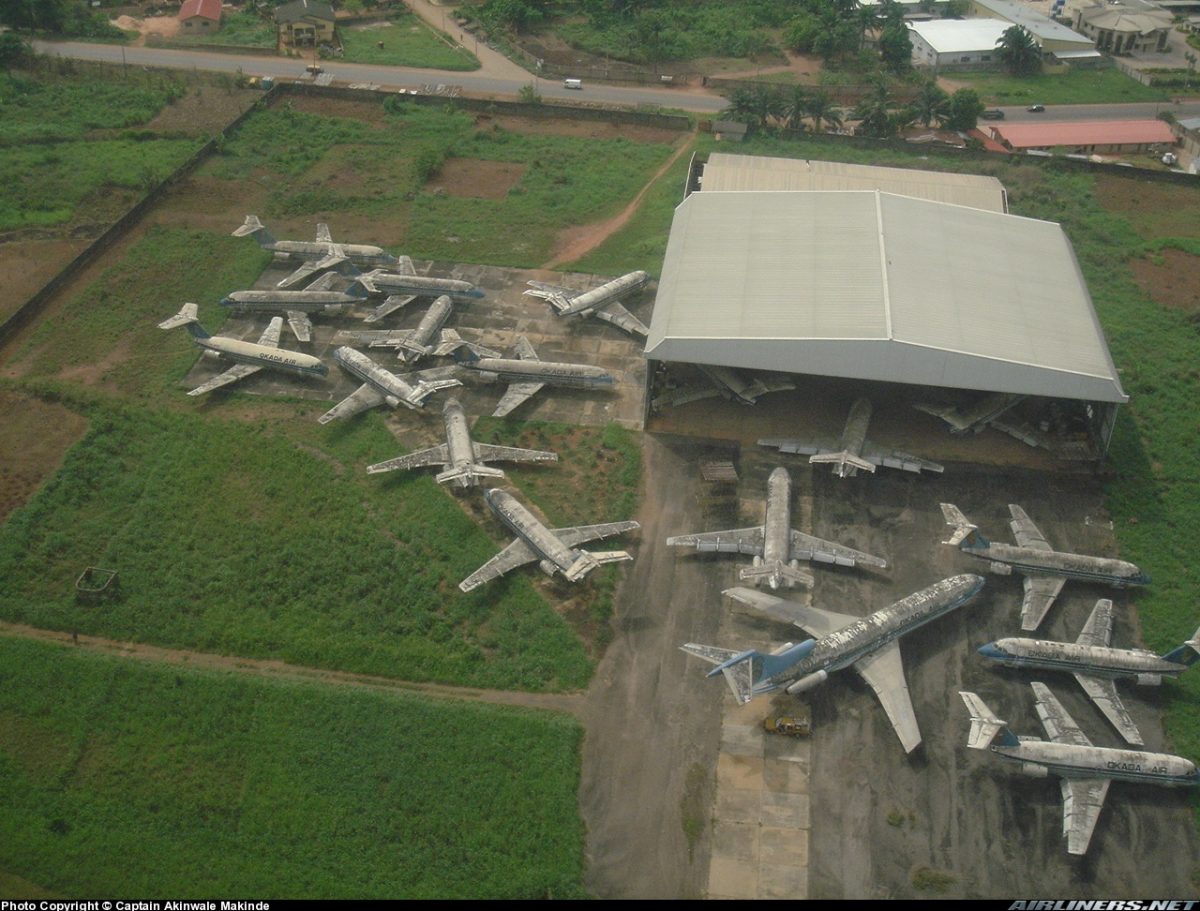[dropcap]A[/dropcap] few weeks ago, the President announced a committee to look into reviving Nigerian Airways. Since then, some of his supporters have gone to town about how wonderful and profitable it could be for Nigeria.
Today on #HistoryClass, we will be breezing through the rise, and the demise, of Nigeria’s national carrier. A lot of today’s gist comes from newspaper archives, some of which is investigative work by Nicholas Ibekwe.
Nigeria Airways started as West African Airways Corporation Nigeria (WAAC Nigeria) in 1958 with Nigeria as majority owner. The defunct Elder Dempster Lines and BOAC held the remaining 49% of the shares, and BOAC were the airline managers. Naturally, the first international route was Lagos-London, which was operated by a leased plane owned by BOAC.
Shortly after independence, WAAC Nigeria became the flag carrier of Nigeria and then, the government took sole possession. The airline expanded fast, 5 new aircraft and new routes, Abidjan, Accra, Banjul, Dakar, Freetown and Monrovia by 1963. Gradually, starting from 1964, BOAC withdrew from operations, and Nigerians ran the airline more and more on their own.
Nigeria Airways’ first crash was on 20/11/1969, a VC10 plane arriving in Lagos from Kano, killing all 87 people aboard.
By 1970, the airline had 2200 staff, 8 planes, with London, Frankfurt, Madrid and Rome and West African destinations. In 1971, a Boeing 707, leased from Ethiopia, entered service to replace the plane which crashed two years before. In 1972, British involvement in running the airline ended as Nigeria signed a management contract with America’s TWA. Fleet expansion continued, and by the end of 1978, Nigeria Airways had a total of twenty aircraft, mostly from the US. The agreement with TWA ended in early 1979, and by September of that year, KLM were the new managers of Nigeria Airways. During the 7 year period of TWA’s management, Nigeria Airways suffered FIVE plane crashes killing a total of 194 people.
By the end of Shagari’s reign, Nigeria Airways’ debts were more than revenues, there were 500 staff for each plane. When Buhari overthrew Shagari in 1984, nine of Nigeria Airways’s planes were unserviceable, seventeen were flying, and there were 8500 employees, most idle. Buhari ordered the airline to reduce the number of employees and routes as a cost-cutting measure. It didn’t work.
By the time Babangida came, another 1000 jobs were cut, and by 1988, with huge debts, most African routes were culled. Staff salaries were left unpaid, and staff resorted to, err, self-help, pilfering what they could to sell.
By 1997, Nigeria Airways had only 3 planes, and had been banned from most Western destinations over safety concerns.
When Obasanjo took over in 1999, efforts were made to revive the airline, including leasing a plane from Air Djibouti.
Djibouti? We were such bad managers, and debtors that only Djibouti agreed to lease a plane to us!
So, why did Nigeria Airways collapse?
Nicholas Ibekwe did excellent work on the demise of our former national flag carrier. Every contract given out between 1997 and 1999 when Jani Ibrahim was Managing Director was found to be fraudulent. But the biggest damage done to the airline was by Mohammed Joji who misappropriated a total of $31 million. NOT ONE, of the people who were indicted by Justice Nwazota Commission of Inquiry set up in 2002 has faced justice.
Nigeria Airways was a very good example of why the Nigerian government should be banned from running businesses. I urge the government of President Buhari not to waste everyone’s time with this venture. Today’s #HistoryClass is over.
Cheta Nwanze is a journalist and IT professional. He tweets from @Chxta.
The opinions expressed in this article are solely those of the author.








